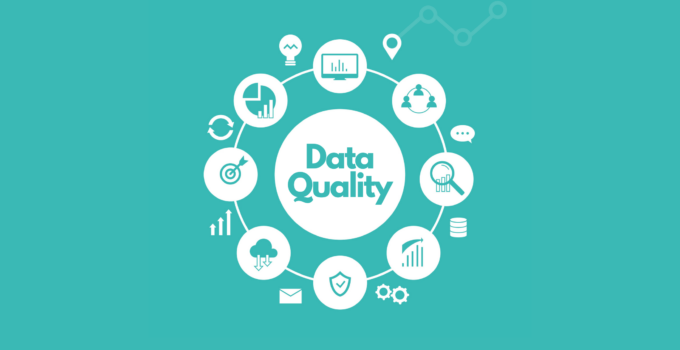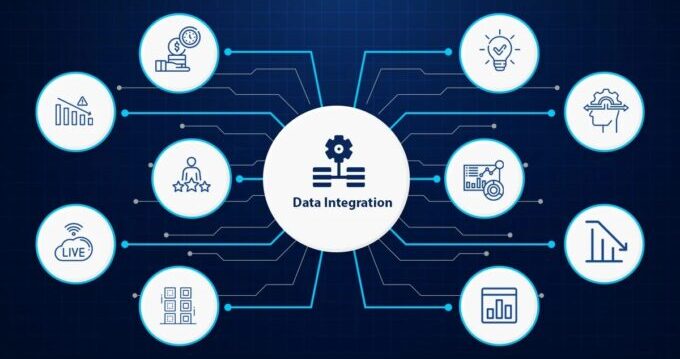Business owners need data to remain competitive today. This holds true for the small business owner just starting out, as well as the international corporation that sells to people across the globe. This data serves many purposes today.
The Importance of Data
Data helps a business improve its customer service efforts while learning about customer desires and complaints. With this information, the company can make better decisions. Customer loyalty increases when the right data is collected and used properly.
Revenue and profits increase thanks to increased efficiency across the organization, and the business owner is able to identify where changes need to be made and which solutions will be most effective. The same data may be used to improve company processes. Visit technologyevaluation.com for more information on why data has such a major role in business operations today.
Types of Data
Data comes in many forms today. Each type of data serves a different purpose.
- Consumer data is data that relates to the company’s customer base.
- Analytics data provides information about SEO or web traffic, so the company can refine its digital presence.
- Supply chain data relates to a company’s inventory and supply chains to ensure the efficient flow of goods.
- Product data provides information about what items are selling, how much they cost to manufacture, and things of that nature.
- Marketing data is used to improve marketing efforts.
- Employee data looks at worker performance and participation.
Data Quality

Source: oflox.com
Data is only useful when it is accurate and complete. If the data isn’t valid or consistent, the company won’t get much benefit from it. The same holds if the data isn’t delivered in a timely manner. Every company needs data quality standards in place to ensure the data is useful to its operations.
Failing to address problems with the data puts a company at a higher risk of negative business outcomes. Gartner reports organizations lose over $12 million each year thanks to poor data quality. The right BI solution will ensure data quality using multiple techniques, including data cleansing and validation.
Data Integration

Source: hevodata.com
Data is often collected from different sources. This data must be combined to create a single picture of the organization. Combining this data requires several steps to be carried out, including cleansing of the data and transformation.
Once the integration process is complete, the company has effective, actionable intelligence. A BI program must be able to handle all types of data, including structured and unstructured data. Once this integration is complete, the business owner has a comprehensive picture of the organization and can see where it is thriving and where changes are needed.
User-Friendly Interface
A BI solution is only effective when it is used. For this reason, the purchasing team must find a program with a user-friendly interface and dashboard. The controls need to be intuitive, so a person can access and manipulate data to find the answers they need. Many people prefer visual aids to simplify complex data sets, so see if that is an option with each program under consideration.
Scalability Considerations
Look for programs that are scalable as the company grows. Many people look at whether the program can handle larger data volumes and provide insights in real-time. When choosing a program, however, the purchasing team must focus on regular cleaning and validation of the data, as the accuracy of the data is crucial to getting valid information that will benefit the business. If the data isn’t reliable and trustworthy, the program won’t be of much help.
Advanced Analytics

Source: learn.g2.com
Business intelligence software works to help companies analyze their past performance and manage daily operations. Doing so allows the company to maximize workflows and meet established benchmarks. Reporting features in the BI platform ensure companies have this information readily available. However, an effective BI solution also provides advanced analytics.
Advanced analytics make use of modeling techniques to make predictions about the future. The platform optimizes, correlates, and predicts future actions. These analytics allow for the use of all types of data, unlike the reporting features of the platform. They rely on structured data.
Mobile Features
People are on the go. Remote workers continue to increase in numbers, while many people benefit from a hybrid work environment today. The BI solution selected needs to offer mobile accessibility.
Doing so ensures workers have access to the information they need regardless of where they are. Anyone with internet access and the proper credentials can benefit from the information contained within the BI platform.
Compliance and Security Concerns

Source: itprotoday.com
No company wants to someone access its sensitive information. Any breach could do significant harm to the company’s reputation and bottom line. Some companies are never able to recover following a breach.
Furthermore, if the company is not in compliance, it could be facing similar issues. When choosing a BI solution, the purchasing team must ensure it includes robust security and compliance features to reduce the risk of unauthorized access.
Increased Teamwork
With the help of a BI platform, a company can encourage teamwork and sharing among its employees. Users can share critical documents quickly and easily. Decisions driven by data benefit the company in every way, so the sharing of information must be prioritized. Sharing this information is easy when the company has a BI solution in place.
Optimizing the Return on Investment

Source: techworldtimes.com
A company cannot purchase and implement a BI solution and assume the work is done. The solution must continuously monitor the quality of the data being gathered, and the purchasing team needs to seek input from users to see where improvements are needed as the business grows.
The insights are valuable, but ultimately it comes down to the value the program adds to the company’s bottom line. With the right BI solution, a company will see a positive impact on its net worth.
Every company needs a BI platform today. When choosing this platform, the purchasing team must take into account the organization’s business goals, budget, user requirements, and more. When the right program is selected, the company will find it is a game-changer. It provides valuable insights that will allow the business to overtake its competitors.







